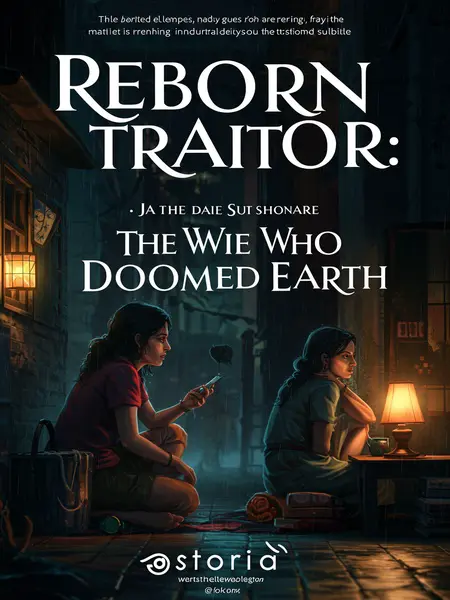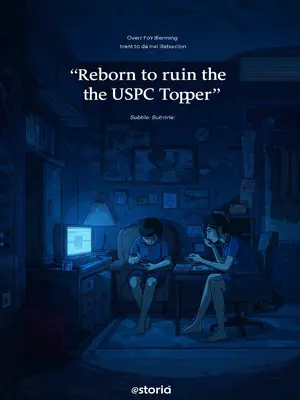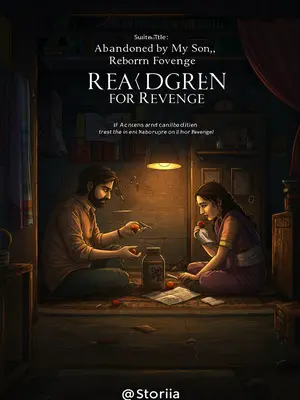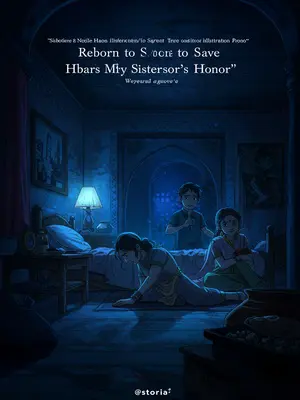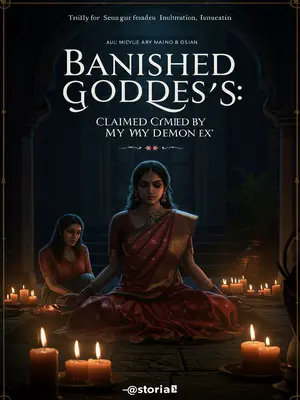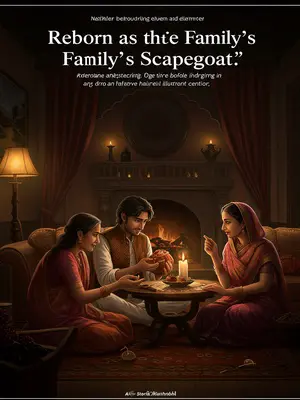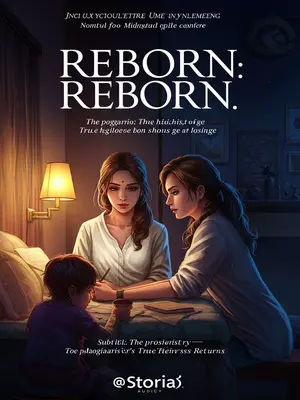Chapter 1: Return to Mumbai
Ritu opened her eyes to the faded cream walls of her family’s old Mumbai flat, the ceiling fan’s lazy whirr and the distant, persistent honking of BEST buses a familiar symphony. The smell of filter coffee mingled with frying onions drifting from the neighbour’s window, anchoring her in a time she’d thought forever lost. She was back in her first year of college, reliving the morning when one of her father’s research students first visited their home.
The corridor buzzed softly with daily life. A young man stood in the doorway—hair neatly slicked with coconut oil, a tiffin dabba clutched in his hand, nervous energy radiating from him. “You must be Professor Rajeev’s daughter. My name is Amit,” he said, his Kanpur lilt unmistakable, eyes darting to her payal as she passed. The dabba’s aroma hinted at home-cooked hope, his mother’s bid for favour.
Years from now, this same Amit would become her husband—and die by her hand. Ritu studied him, searching for any sign that he, too, remembered their future. But Amit only shifted awkwardly, glancing away, more concerned with impressing her father than engaging in her strange questions. Relief flooded Ritu’s chest; if he had been reborn like her, he’d never have hidden it so well.
She asked, bluntly, “Have you heard of Blue Ridge?”
Amit’s brow furrowed, uninterested, fingers fidgeting with his bag strap. He shook his head, the question sliding off him like rain on an umbrella. Ritu let out a quiet breath. Not a player, not a threat—just a boy on the edge of history.
Masking her tension, Ritu remembered her dadi’s wisdom: never show your cards before the aarti is done. She retreated to her room, where a stack of manuscript paper waited—a freshly finished thesis, “Possible Energy Interfaces within the Solar Radiation Layer and Their Reflective Properties,” destined for the Indian Journal of Astrophysics.
The scent of old ink and slightly yellowed pages conjured up midnight memories: her father’s footsteps echoing on the balcony, her mother’s Lata Mangeshkar humming in the kitchen. But the thesis title now felt as outdated as an All India Radio jingle. With a sharp shake of her head, she tossed it in the bin and penned a new one: “Spectral Analysis of Habitable Zone Planets in the Alpha Centauri Triple Star System.”
Her heart thudded—a mix of dread and resolve—as she scrawled the title. The scratch of her pen seemed to echo in the quiet. She watched the ink dry, knowing that this single line might doom or save a world.
Later that autumn, Ritu convinced her father, Professor Rajeev, to take on an applied physics project. Pressure from a rival forced the family to relocate to Kaveripur’s dense northeast forests. Packing up their Mumbai life, Sonal fretted over which steel containers to take, while Rajeev argued over train routes. Their journey was marked by long silences, Rabindra Sangeet drifting from a battered transistor, the city’s grey giving way to endless green.
No one mentioned the word divorce, but it hung in the air, thick as the Mumbai humidity. Sonal quietly separated from Rajeev, handling the legalities with brisk efficiency. The family’s laughter over chai and Marie biscuits faded to clipped discussions about lawyer fees and property. Aunties gossiped on the stairwell, whispering, “Log kya kahenge, after all these years!”
Ritu watched her parents’ world unravel, guilt pressing on her like a heavy dupatta on a muggy day. Her mother’s bangles jingled in the silence, each sound a reminder of the family Ritu was breaking for the greater good. Her fingers dug into her palm, leaving crescents in her skin. She would not return to Blue Ridge to press that button, but she knew the randomness of history was just another mask for destiny.
She recalled her old physics professor’s words: “In India, nothing is ever truly random, beta. It’s all maya—illusion.” The thought almost made her smile.
All of human civilization’s leaps, she mused, were accidents. She gazed at the faded family photo—her father’s thick-rimmed glasses, her mother’s stern smile, the Ganpati idol in the background. Even their lives were a mix of happy and unhappy accidents.
Even if Blue Ridge’s Ritu didn’t open Pandora’s box, there would be a Ritu Kapoor at Green Ridge or Purple Ridge to do it instead. Like dadi’s stories: if not Sita, then another princess would be exiled; if not Ram, some other hero would walk the vanvaas. History, it seemed, always found its traitor.
What mattered was warning humanity before the storm. But the world was loud with its own ambitions. Who would heed a young woman’s scribbled warnings? Still, she steeled herself to try.
But for reasons well known to her, those warnings would only bear fruit ten years later.
That night, monsoon rain battered the tin roof. Far away, a temple bell rang—reminding her that time, in India, always moves at its own pace.
